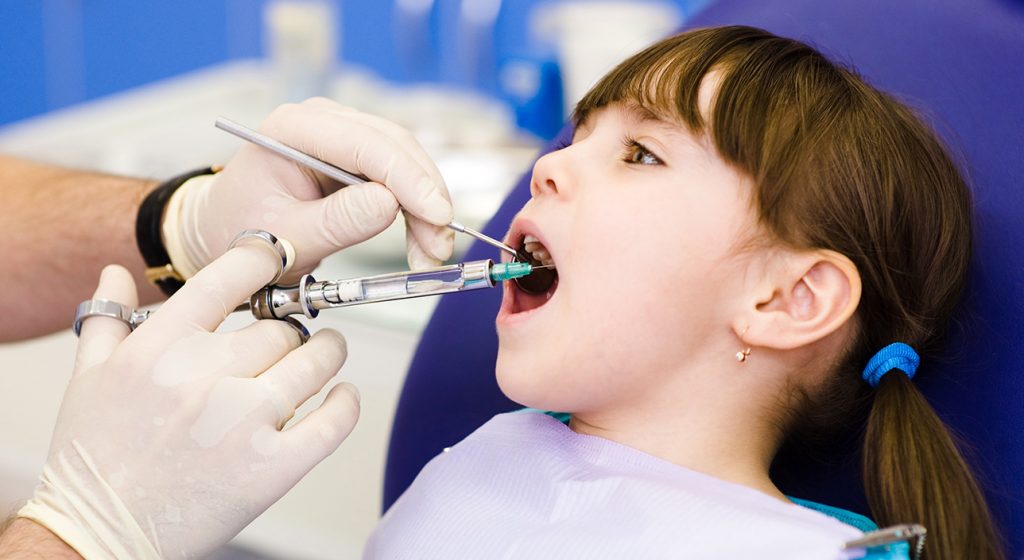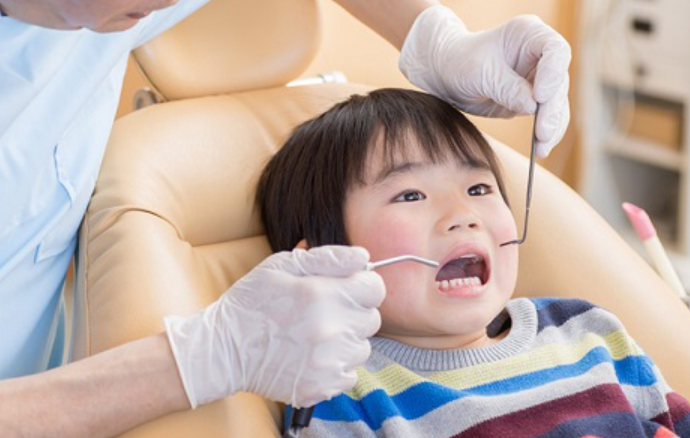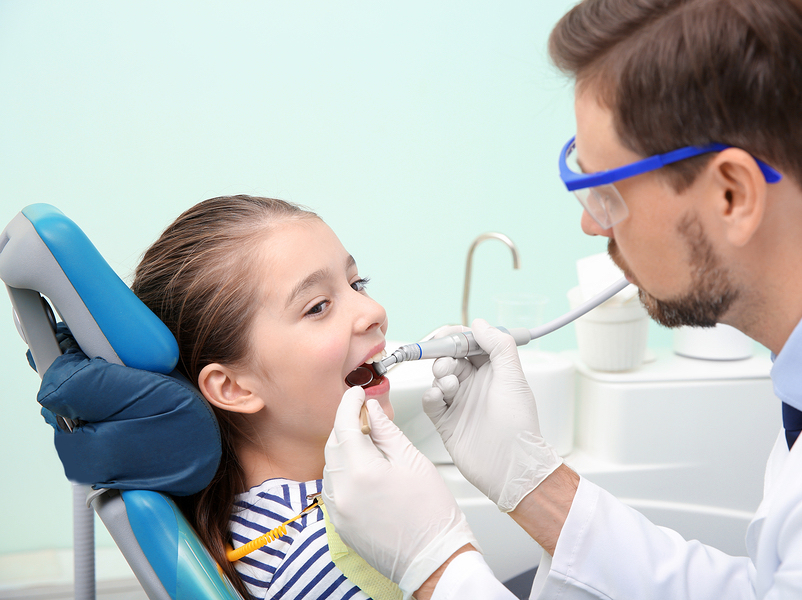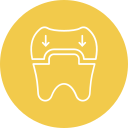



Booking
What is Pediatric Dentistry?
Pediatric dentistry is a specialized field of dentistry focused on the oral health care of children, starting from the emergence of baby teeth until the completion of permanent teeth. Pediatric dentists provide comprehensive dental services, including routine check-ups, cavity treatment, fillings, orthodontics, and addressing various other oral health issues.

Why Should Children Visit the Dentist Early?
Early Detection of Issues
Pediatric dentists can identify early oral health problems such as cavities, gum disease, and jaw abnormalities, allowing for timely intervention and treatment.
Getting Familiar with the Dental Environment
Taking children to the dentist early helps them become accustomed to the dental environment, reducing anxiety and fear associated with dental visits.
Developing Good Oral Hygiene Habits
Dentists will guide children and parents on proper oral care techniques, helping children establish good dental hygiene habits from an early age.
Preventing Oral Health Issues
Regular dental check-ups help prevent oral health problems, ensuring that children maintain healthy teeth and gums.

Pediatric Dentistry During the Baby Tooth Stage
After the first 6 months of life, children will begin to develop their first baby teeth. In most children, the sequence of eruption involves a total of 20 baby teeth in the following order:

Central incisors: 6 – 12 months.

Lateral incisors: 9 – 16 months.

First molars: 13 – 19 months.

Cuspids (canines): 16 – 23 months.

The second molars: 22 – 33 months.
All concerns during this stage focus on maintaining proper dental hygiene for children to prevent cavities in their primary teeth. Keeping children’s primary teeth healthy not only helps them experience better speaking and chewing activities but also lays an important foundation for the development of permanent teeth during the transition period.
Therefore, at the age of 3, dentists recommend that parents take their children for their first dental check-up. This visit is not only for the dentist to ensure proper oral hygiene for the child but also to help the child become familiar with the dental environment and establish a routine of visiting the dentist every six months for check-ups.
Common Services at Pediatric Dentistry
- Routine Dental Check-ups: Assessing oral health and evaluating the development of teeth and facial structure.
- Oral Hygiene Services: Scaling and polishing teeth to remove plaque and tartar.
- Cavity Treatment: Filling cavities and performing root canal treatments.
- Orthodontics: Correcting issues like crooked teeth, overbites, and underbites.
- Primary Tooth Surgery: Extracting primary teeth when necessary.
- Treatment of Gum Diseases: Managing conditions like gingivitis and periodontitis.
Caring for children’s dental health from a young age is very important. Take your child to the dentist for a healthy smile!


When Should Parents Take Their Children to the Dentist?
Parents should take their children to a pediatric dentist as soon as they notice any of the following issues:

Children have cavities, experience pain, show dark spots on the gum line, and have significant plaque buildup on their teeth.

Children experience various issues during the teething process, such as overbites, underbites, and misaligned or crowded teeth, which can make chewing and speaking difficult and affect their appearance.

If a child has lost primary teeth for a long time without permanent teeth emerging, parents should check to see if there is a missing tooth bud or if there are extra teeth growing underneath that may be obstructing the permanent teeth from coming in.

Children experience early wisdom tooth eruption at the age of 10 to 12, which can negatively affect their molars.
Children aged 6 to 12 need dental screenings to ensure that their permanent teeth are developing properly and in the correct positions.
Pediatric Dental Examination Process
The specific steps for a dental implant procedure are as follows:

Fill Out the Form and Register for the Child’s Check-up

The Dentist Examines the Child’s Oral Health
Tests or X-rays (if necessary)

The Dentist Diagnoses and Provides a Treatment Plan
Step 1: Fill Out the Form and Register for the Child’s Check-up
Parents bring the child to the clinic and fill out a form providing required information (personal details, current dental issues the child may be facing) to register for the appointment.
Step 2: The Dentist Examines the Child’s Oral Health
The dentist will check the child’s teeth, including both primary and permanent teeth (if present), to identify signs of cavities, enamel erosion, gum disease, etc.
Step 3: Tests or X-rays (if necessary)
In some cases, the dentist may request tests or X-rays to accurately diagnose any abnormalities in the child’s dental, jaw, and bite structure.
Step 4: The Dentist Diagnoses and Provides a Treatment Plan
If any issues requiring intervention are found, the dentist will discuss options with the parents and develop an appropriate treatment plan.
Tips for Parents Taking Their Child to the Pediatric Dentist for the First Time
The first visit to the dentist can be stressful for both parents and children. To ensure the trip goes smoothly and leaves a positive impression on your child, parents should consider the following tips:
Before the Treatment

It is recommended to take your child for their first dental check-up when they are 3 years old.

Prepare Your Child Mentally: Talk to your child: Explain simply that going to the dentist is very important for keeping their teeth healthy.

Use Positive Language: Instead of saying “going to the dentist will hurt,” say “we’re going to the dentist so the doctor can make your teeth stronger, and you’ll have an even brighter smile!”

Show Pictures to Your Child: Let your child look at images of the dental clinic, dental tools, and fun activities at the clinic to help them gradually get familiar with the environment.

Choose the Right Time: It’s best to take your child for a dental check-up when they are healthy and in a good mood. Avoid scheduling the visit when they are hungry, tired, or unwell.
After the Treatment

Create a Comfortable Atmosphere During Treatment
- Let the child sit with a parent or a trusted family member.
- Allow the child to bring their favorite toy.
- Offer praise and encouragement throughout the examination.

Cooperate with the Dentist:
- Follow the dentist’s instructions.
- If the child is fearful, reassure them and ask the dentist to proceed slowly and gently.

After the Dental Check-up:
Praise Your Child:
- Commend your child for being good during the dental visit.
- Consider rewarding them with a small gift to encourage positive behavior.
Continue Oral Care at Home:
- Teach your child the correct way to brush their teeth.
- Take your child for regular dental check-ups as recommended by the dentist.
Things to Avoid:
- Threatening: Do not scare your child by saying they will get a shot if they misbehave.
- Speaking Negatively About the Dentist: This will make the child fearful and reluctant to visit the dentist.
- Comparing Your Child to Others: This may lead to feelings of insecurity.
Note: Every child has a different personality, so parents need to adapt their approach to help their child overcome any fear of visiting the dentist.
WEE Dental - Caring with dedication - Elevating value.
- Address: 127 Luong Dinh Cua, Quarter 3, An Khanh Ward, District 2, Thu Duc City, Ho Chi Minh City.
- Hotline: 0362 790 924
- Website: weedental.vn
- Fanpage: https://www.facebook.com/weedental.fanpage/
With strong professional expertise, Wee Dental is confident to accompany you on the journey to effective and safe oral health care.

